Listen up nerds, Jon Snow’s true name is Aegon Targaryen. Wipe off your glasses, tighten your suspenders, hit your inhaler, and get over it.
The mystery has finally been revealed in Game of Thrones: Jon Snow is neither a Jon nor a Snow. His name is Aegon Targaryen and fans are up in arms across the fandom about this. However, I contend that Jon’s true name is a great choice and makes sense when you consider the context and clues from A Song of Ice and Fire and GoT hinting towards this.
There are a few main complaints about why Aegon is a bad name for Jon. Right at the top of the list, and widely lampooned is Rhaegar copying George Foreman, in that Rhaegar already had a son named Aegon. This Aegon was born to first wife, Elia Martell, and makes Rhaegar a a mad prince naming all his sons the same.
Let’s examine the naming choice here. Rhaegar was not with Lyanna Stark when Jon with born, nor even alive. Jon was born after the sack of King’s Landing and as Ned Stark says in the show at the Tower of Joy:
“The mad king is dead, and Rhaegar lies beneath the ground”
The same as Arthur Dayne and Gerold Hightower not being at the Trident, Rhaegar was not there for Jon’s birth. While Rhaegar may have left his preferences for what his child would be named, it was ultimately Lyanna’s decision to name their child as she lay dying on the blood-stained bed.
There is also the question of what name Rhaegar would’ve even left for his child. It’s a detail often glossed over in the show, but Rhaegar had a pattern in mind for his children. His first child was a daughter he named Rhaenys. His second child, a son he named Aegon. If you follow this pattern, it’s very likely he did not expect a son from Lyanna, but rather a daughter. Why? Because he was naming his children after the original three heads of the dragon of Aegon the Conqueror. The show referenced them here in a scene between Arya and Tywin at Harrenhal,
Aegon the Conqueror married his two sisters Rhaenys and Visenya, and they were not just his wives but equal partners in his conquest. They rode their own dragons, conquered kingdoms and accepted fealty on Aegon’s behalf, and burned the armies in the Field of Fire. Rhaegar maintains that the dragon must have three heads, so he must have three children. We see this in the House of the Undying visions shown to Dany:
“Will you make a song for him?” the woman asked.
“He has a song,” the man replied. “He is the prince that was promised, and his is the song of ice and fire.” He looked up when he said it and his eyes met Dany’s, and it seemed as if he saw her standing there beyond the door. “There must be one more,” he said, though whether he was speaking to her or the woman in the bed she could not say. “The dragon has three heads.” He went to the window seat, picked up a harp, and ran his fingers lightly over its silvery strings. Sweet sadness filled the room as man and wife and babe faded like the morning mist, only the music lingering behind to speed her on her way. – A Clash of Kings, Daenerys IV
Rhaegar had decided the three dragons would mirror Aegon and his sisters and began naming them appropriately. Given that pattern, it seems very likely that Rhaegar left only one name with Lyanna. Visenya, the third head of the dragon for the daughter he was certain was coming. He was dead wrong. It was thus left to Lyanna, dying from childbirth with no prepared name for her surprise son, to come up with a name.
It’s important to point out that Rhaegar was often wrong in his predictions of the future, yet still acted decisively on them. Early on in his life (I covered this in my Rhaegar primer), Maester Aemon says that Rhaegar thought he would be the Prince that Was Promised and set out to make himself a warrior. However, he became convinced it would be his children instead and began these naming conventions. Rhaegar also incorrectly believed that Elia Martell would have his three children, leading to him pursuing Lyanna Stark. Right up to his last days he was wrong, as he also told Jaime Lannister that he would be returning from the Trident.
Rhaegar had put his hand on Jaime’s shoulder. “When this battle’s done I mean to call a council. Changes will be made. I meant to do it long ago, but . . . well, it does no good to speak of roads not taken. We shall talk when I return.”
Those were the last words Rhaegar Targaryen ever spoke to him. Outside the gates an army had assembled, whilst another descended on the Trident. So the Prince of Dragonstone mounted up and donned his tall black helm, and rode forth to his doom. – A Feast for Crows, Jaime I
It’s perfectly in character that this failed prophet would make the bold move of not leaving a name for a boy. Also, by the time Jon was born, it’s possible that the news of Rhaegar and his family’s deaths would’ve reached Lyanna and, in her grief, she decided to name her own son after Elia’s, making a touching tribute to an innocent infant brutally murdered by the monstrous knight, Gregor Clegane.
Also, there are multiple book passages that support the idea that Jon is actually named Aegon and not the other popular possibilities like Jaeherys, Daemon, or Aemon (my personal favorite). The most explicit hint comes from Maester Aemon:
A man grown with sons of his own, yet in some ways still a boy. Egg had an innocence to him, a sweetness we all loved. Kill the boy within you, I told him the day I took ship for the Wall. It takes a man to rule. An Aegon, not an Egg. Kill the boy and let the man be born.” The old man felt Jon’s face. “You are half the age that Egg was, and your own burden is a crueler one, I fear. You will have little joy of your command, but I think you have the strength in you to do the things that must be done. Kill the boy, Jon Snow. Winter is almost upon us. Kill the boy and let the man be born.” – A Dance with Dragons, Jon II
And there’s the House of the Undying vision earlier, where Rhaegar says:
Viserys, was her first thought the next time she paused, but a second glance told her otherwise. The man had her brother’s hair, but he was taller, and his eyes were a dark indigo rather than lilac. “Aegon,” he said to a woman nursing a newborn babe in a great wooden bed. “What better name for a king?”
“Will you make a song for him?” the woman asked. – A Clash of Kings, Daenerys IV
Rhaegar intended for his male heir to be named Aegon and become king. He may have told Lyanna the same thing while they were together. She may have remembered that, after hearing of the deaths of Elia and her children, and along with empathy, decided that if her son should one day take the Iron Throne he should have the name of a king as well.
In support of the name Aegon is also the relationship between show runners David Benioff and D.B. Weiss and author George R.R. Martin. There’s a story Dan and Dave love to tell about how they landed the show rights from George. From an interview with Variety, D.B. Weiss says,
We had become instantly and genuinely obsessed with his books to the point where we knew lots and lots about the minutia of them — and then he asked us the question about Jon Snow’s parentage. Maybe if we had gotten it wrong, he would have let us do it anyway.
They had to correctly say that Lyanna was Jon’s mother. This means that, for George, the true identity of Jon is a vital point that the entire story hinges on. It’s hard to believe that Dan and Dave would go off the reservation on such a pivotal piece of Jon’s identity due to its importance.
There’s also the famous story that originated in Entertainment Weekly, that to help the show runners finish the series, George gave them three twists to work towards, as a narrative.
- Stannis burns his daughter Shireen Baratheon
- Hodor comes from Wylis (Walder in the books) saying his future last words “Hold the door” over and over.
- The third is unknown- it could very well be Jon’s true name.
The reveal would count as a twist, as in the books it has been hinted as heavily that Jon’s name is Aemon versus Aegon. In a particularly revealing memory, Jon as a boy shouted out that he was Aemon the Dragonknight in a sparring match with Robb.
Every morning they had trained together, since they were big enough to walk; Snow and Stark, spinning and slashing about the wards of Winterfell, shouting and laughing, sometimes crying when there was no one else to see. They were not little boys when they fought, but knights and mighty heroes. “I’m Prince Aemon the Dragonknight,” Jon would call out, and Robb would shout back, “Well, I’m Florian the Fool.” Or Robb would say, “I’m the Young Dragon,” and Jon would reply, “I’m Ser Ryam Redwyne.”
I go into extensive analysis of this revealing memory in two posts detailing how Robb and Jon’s journeys mirror those of the heroes they named themselves. In Jon’s case, the important name for our purposes is that he calls himself Aemon the Dragonknight. This seems like an intentional hint by our author leading towards the conclusion that it may be Jon’s true name.
Additionally in support of Aemon as his name is the very close relationship between Rhaegar and Maester Aemon. As I discuss in my Reddit post Aemon the Blind: Prince Rhaegar, they wrote letters back and forth throughout their lives trying to solve the mystery of the prophecy, and eventually save the world together.
However, with the clues toward Jon being named Aemon, there are problems with them. While in this memory Jon names himself Aemon the Dragonknight, in A Game of Thrones/Jon IX he contradicts that:
But he had not left the Wall for that; he had left because he was after all his father’s son, and Robb’s brother. The gift of a sword, even a sword as fine as Longclaw, did not make him a Mormont. Nor was he Aemon Targaryen.
In addition, the show has scrubbed nearly all mention of the relationship between Maester Aemon and Prince Rhaegar from the narrative. If that relationship was meant to influence Rhaegar’s naming of his child, it should’ve been portrayed in even some small way in the adaptation. The complete lack of the relationship is a glaring sign against the name Aemon. Also as discussed above, the evidence points away from Rhaegar being involved in the naming of Jon anyway. Lyanna Stark has no connection with anyone named Aemon. She may have never even known of Maester Aemon’s closeness with Rhaegar as the maester never mentions her at all.
Aegon is a strong name in the lore, the name of the Conqueror and as traditional for the Targaryens as the name Brandon is for the Starks. Rhaegar says from beyond the grave that it is a fine name for a king, and Maester Aemon’s advice for Jon in centered around his own brother King Aegon V. It may not be the most popular name fans have speculated on in the fandom but it is one that works well in the narrative when you consider Jon’s parents, the context, and the role he seems to be poised for. As an added bonus, many speculate that hidden in the tomb of Lyanna Stark there may be some items meant for Jon as proof of his parentage. Rhaegar’s harp, Lyanna’s maiden’s cloak or wedding gown, a dragon egg…
But imagine if instead, waiting in his mother’s tomb for him to tell him his true name, is the lost crown of Aegon the Conqueror that was last seen conveniently in Dorne. A name and a crown fit for a king.
Come at me nerds, tell me how you are rationalizing your wrongness. Don’t @ me.
The post The Case for Aegon Targaryen appeared first on Watchers on the Wall.
Via http://watchersonthewall.com
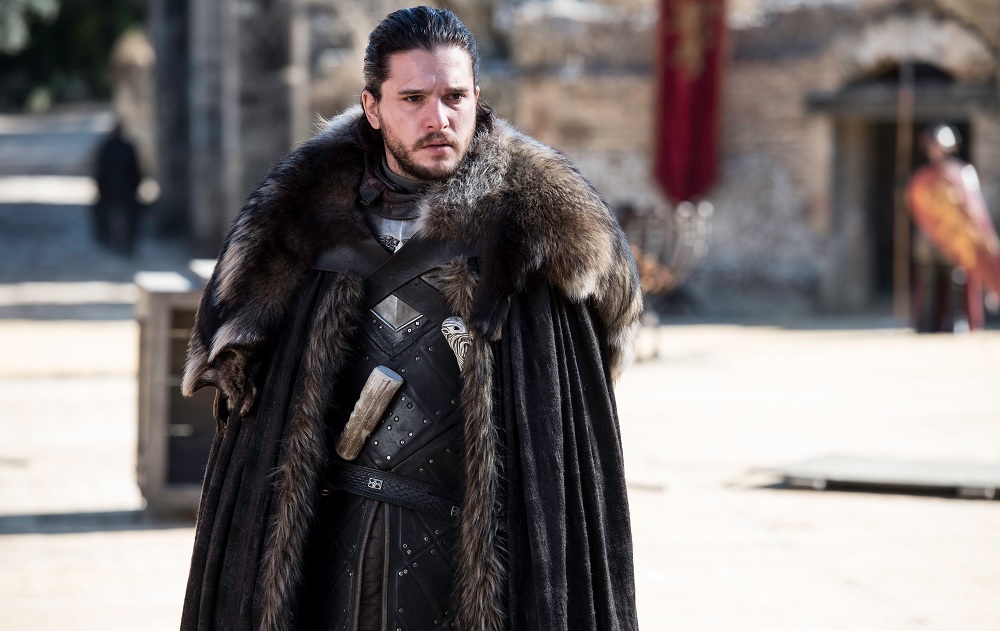
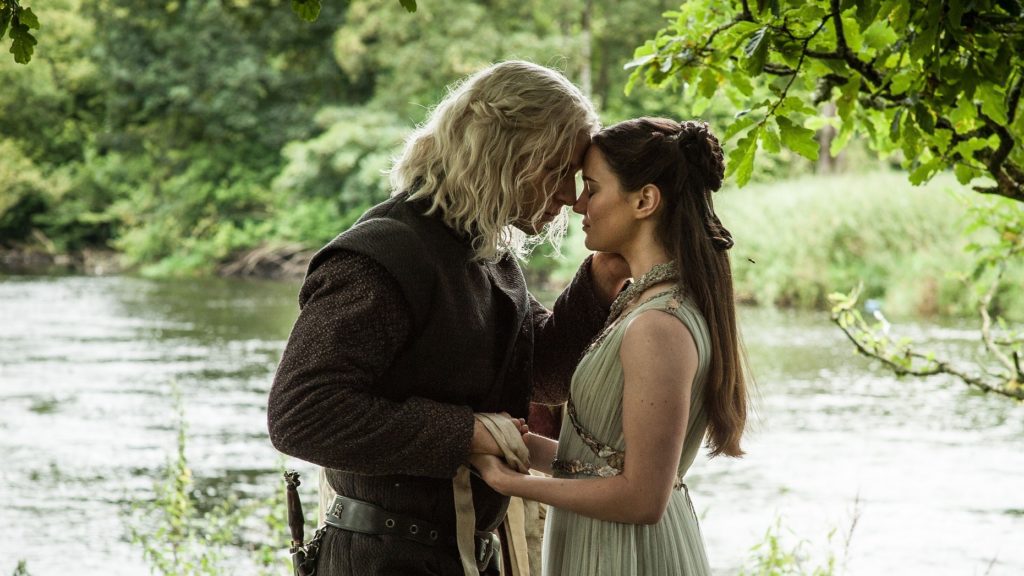
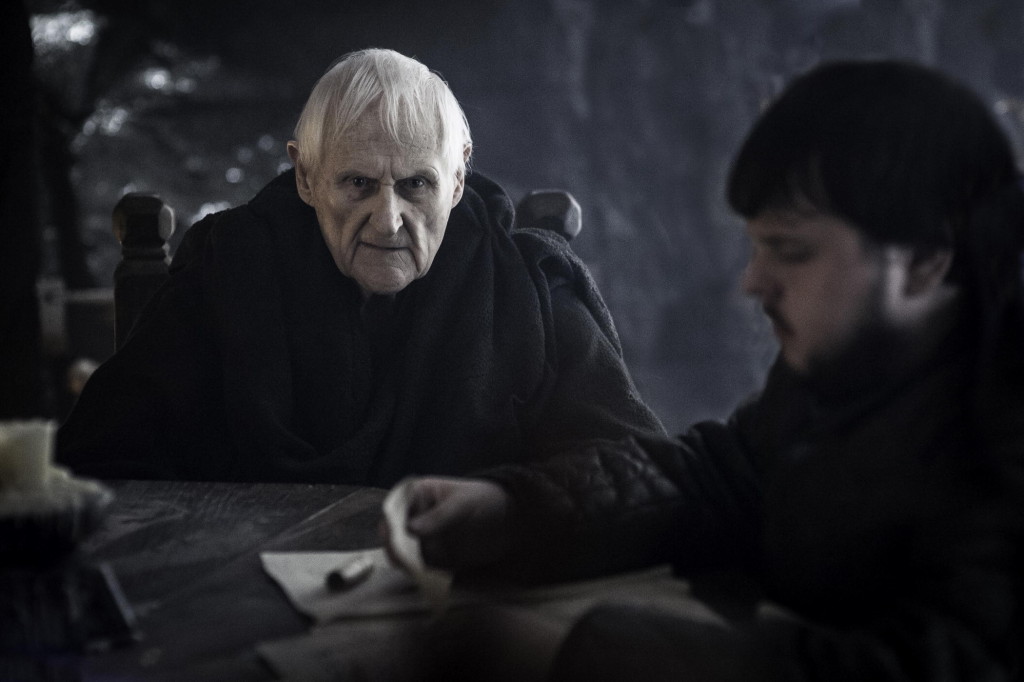
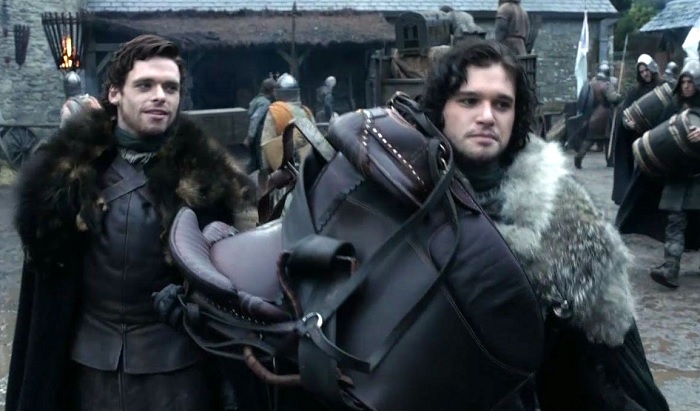
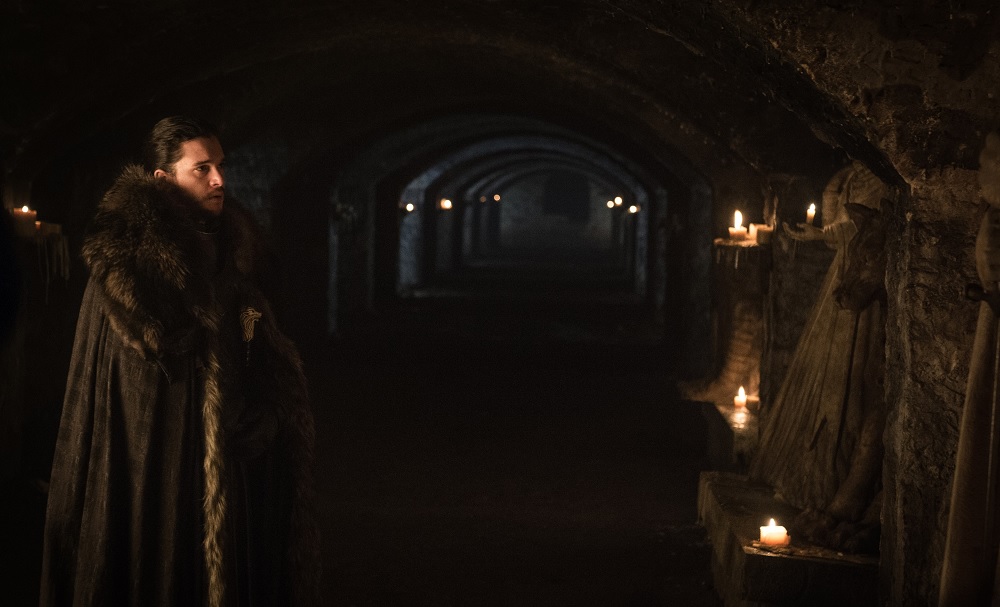
No comments:
Post a Comment